by Alex Shtaerman
Fiercely reasserting their boom bap roots on their fourth album 20/20, the Los Angeles based trio of Rakaa, Evidence and DJ Babu deliver that uncut raw Hip-Hop flavor straight to your eardrum. Dilated Peoples is the group, 20/20 is the new album and Back Again is the blazing hot new single. See it clearly.
RIOTSOUND.COM: Your new album 20/20 is dropping Feb 21st; with this being your fourth LP, what did you want to deliver to the fans on this one?
EVIDENCE: The message is clarity, us understanding who we are more than ever. We stand for something and we don’t fall for anything at this point in our careers. People look to us for a reason. I think people more than ever need somebody that’s going to be a leader to really lead the movement and not be gun shy or one day be really about it and the next day falling back. [People] need to know that the person that’s going to step up to the plate is really about it. And that’s what I feel this record is about. It’s a lead by example kind of record. We can talk all day about how we’re going to do this and that but I think we made the record that reflects everything we’ve been trying to talk about this whole time. So I’m just excited to get it out to the people and start touring and start getting the buzz and the awareness bigger and bigger each day.
DJ BABU: We were all a lit bit disappointed with how our last record was promoted. I love Neighborhood Watch but I really don’t feel like the presentation was correct. All people got was [the single This Way] featuring Kanye West shoved down their throat and nothing else about the album. So I think it gave the wrong impression of what Neighborhood Watch was about. For 20/20 we’re really on a mission to focus on that classic Dilated sound. This one is definitely for the history books.
Whether we go wood or platinum or whatever it may be, we’re all really happy with what we did. And I think this album is geared towards our core fans, the people that were buying Dilated records before we had videos and before we were on Capitol Records, back when we were just a logo on a piece of twelve inch vinyl. This one is just hard beats, hard rhymes and hard cuts; the formula that got us to where we’re at.
RAKAA: I really feel a lot of what we do and a lot of the perception of our group has nothing to do with the music itself as much as it has to do with what other people are doing around it. We go in the studio and make a crazy record and then there’s other machines that have to get behind it. So I would say with this record we want to let people know [that] regardless of what you thought, Dilated is still boom bap at its finest. Dilated is still doing what we do. We’re boom bap specialists, we love Hip-Hop culture and 20/20 is just that uncut pure version and that’s how we like it. We like it uncut and pure and that’s what it is.
Neighborhood Watch, honestly, was a great album as far as I’m concerned. I love that album and it’s unfortunate that a lot of people couldn’t get past the first single on it; for good and for bad. The record label was stuck on it because they thought it was gonna blow. Some people didn’t like the record because of what they assumed the whole album was going to be about. They thought the whole album was being reflected by that single. So it was a crazy experience coming off the last campaign to see how people in the streets can be and to see how record labels can be. But ultimately man, we didn’t want to harp on that. We just wanted to get back in the studio and do what it is exactly the way we wanted to do it. And I think we got back to making records the way that we started making records, which was for twelve inches, for DJs to spin ‘em and for mixtapes. That’s the way we made our records and I think going into 20/20 that’s what we got back to.
RIOTSOUND.COM: On a creative level, in what ways do you approach it differently when you’re making records with that twelve inch sensibility in mind?
RAKAA: I would say that Neighborhood Watch, unlike The Platform, Expansion Team and 20/20, is more like a painting. Sort of like a blank canvas and we go up to the blank canvas and paint a picture. Where as everything else we have done in our career has been more of a mosaic. It’s been like taking pieces and fragments of things and putting them together to form a picture. And I think that ultimately that’s our strength. You get a different texture and you get different lines when you do it that way. There are more dynamic breaks that lend themselves to the contrast and I think that’s something that people want in our sound. We don’t chase formulas, we don’t chase fans, we don’t chase what’s on the radio; we don’t chase any of that.
To be honest, when we did This Way I didn’t even know Kanye West rapped when I got to the studio. We did that record in June of 2003, even though the album came out in April 2004. I knew [Kanye] was a producer and I had heard stuff of his that I liked. We got in the studio and he started playing records that would later become College Dropout. He actually asked us like – yo, I got this verse, is it cool if I kick it; if you like it we can use it, if not no problem, I’ll just produce the track. So he kicked the verse and we liked it. He asked to be on the song and we let him. I had no idea. I was like “cool”.
Later on it was a situation where by the time our record came out [that song] was what everyone was fixated on because Kanye’s record had come out and made such a big splash. But at the time we worked with him he was the Roc-A-Fella producer. He was Jay-Z’s producer as far as I was concerned. And that was pretty much it, he was a great producer and he worked with Jay-Z. What Jay-Z does on the mic is incredible and the fact that a cat like Kanye can come in and take what Jay has always done on the mic and build a bridge between that and the people, we figured, man, that’s a great producer. He’s somebody that can allow the artist to do what they do and still get it to more people.
And honestly, I really don’t give a fuck because if you go back and listen to This Way, it isn’t an empty commercial song for the radio. People are like – oh, it’s so commercial. That song is about change, go back and listen to those lyrics, it’s a positive and uplifting song. I’ve had people come up to me and say, man, I was gonna kill myself or I was about to get a divorce and I heard this song and that changed it. So really man, if you don’t like it, cool, there wasn’t something for you in it. If you do, perfect. But I think a lot of it has to do with the record label getting the impression that [pushing that song] was going to make their life easier and the fans getting the impression that all of a sudden we were going to be singing on every hook without giving [the rest of the album] a chance.
RIOTSOUND.COM: Speaking of impressions, how do you view the whole debate as far as some fans contending that rap music has become over commercialized and that things were far better before everything went so mainstream; in your view, what are some of the positives about rap music and Hip-Hop culture in 2006?
DJ BABU: I’m definitely not one of those people who hates, I think it’s great right now. I’m a little biased being a DJ and a producer but I love what’s going on with the production world, the underground and the overground. There’s just so many dope producers and beat makers; I love that side of it for sure. And to be honest, if you’re at the street level, all the elements of the culture are doing their thing. I don’t know if you look at graffiti much but it’s incredible what these dudes do with spray paint now. That shit is fucking alive. B-boying, shit is next level. DJing, shit is next level. Everything has evolved. We’re going on twenty plus years here now, so there’s been a few sets of shoulders for all the new generations to stand on and develop things.
But really the biggest difference is just what gets light at what time and right now the light is on the commercial or the gangsta rap or whatever the industry thinks they can exploit to make a buck. And that’s the part of it I don’t like. I just don’t like how the media puts their own spin on it a lot. They wield a lot of power. Whether its one company owning all the radio stations or its one record company owning all the record companies. Whatever it is, they put a spin to their advantage on it. If they have certain kinds of artists signed then [of course] everything is going to get pushed like that.
I think Hip-Hop itself is great, it’s just what’s focused on in the media man, that’s the part I don’t like about it, how undistributed the focus is, ‘cause there’s a lot of really dope shit going on and it’s still evolving. Hip-Hop’s taking over man, it’s just a double edged sword I guess and that’s the biggest thing that sucks about it [laughs]. I dreamed of days of being able to walk into somewhere and get a mixer made for scratching or get records made for scratching. But with that blowing up and with that at hand, shit gets watered down, it definitely does. I think now you kind of have to search a little bit harder but it’s all out there, it’s still all there.
RAKAA: I think Hip-Hop culture itself is beautiful, it’s wonderful, it’s perfect and it has created a common denominator all over the world. Hip-Hop has built bridges all over the world between different races, cultures, levels of social status and financial status. All these things Hip-Hop has come in and become a common denominator and equalizer for. I would say the problem isn’t with Hip-Hop culture.
The record labels are not concerned with Hip-Hop culture. They’re not even concerned with rap music culture. They’re concerned with moving units. If they could make more money selling napkins or boxes of cereal or vitamins, that’s what they would have been in the business for. They don’t care about rap music, they’re scared of rappers and they wish their kids would take down the posters in their rooms of these rappers. But [at the same time] they gotta sell it because it’s making them money.
So as far as how I look at it is Hip-Hop culture is perfect, it’s beautiful. There are a bunch of industries [such as] the mainstream record business and mainstream media outlets which I think are a much bigger problem, actually the only problem. ‘Cause these people are no longer saying – Ok, give us your best and we’ll take it to the people. Now all of a sudden the media and the record companies are in the process of “creating” artists for Hip-Hop. No longer do the streets say something is hot, now get it to the record labels and let them take it to the world. Now the record labels sign somebody based on a look or one single or whatever and then they force the streets to play it. They put it in radio rotation and they force it to be played over and over again all over the country till people have no choice but to be addicted to it or have it ingrained in their minds.
So anything you have a problem with, like when people say – oh, rap is all bling bling and jewels. Ok, go tell Slick Rick that [and tell him] that he has problem. Go tell Eric B. & Rakim that they have a problem. Go tell Run DMC that they shouldn’t have worn big ropes; you know what I’m saying. The bling has always been there. Rakim had a Mercedes Benz with a Louis Vuitton top in the ‘80’s! Anything you are seeing now is nothing new, nothing new. It was just that at the same time [Rakim] would do that he’d be kicking one of the illest rhymes. He’d be breaking down science and mathematics but happen to be looking hella dapper and fresh relative to what was poppin’ at that time.
So it’s not about what you wear or how you wear it. It’s not about the car you drive or any of that. None of that has to do with skill. None of that has to do with your message. If you’re gonna come with that then you have to balance it and I think that’s what we’re missing right now. These artists might have dressed crazy and they might have all these jewels on, they might do whatever but when it all comes down to it they were totally original and they had balance. So I think that’s the only thing we’re missing, balance. But other than that the Hip-Hop scene is beautiful man. It’s just the record labels and the media that sometimes act parasitically. They just feed off of it without giving anything back which is the main problem.
RIOTSOUND.COM: Dilated Peoples is known to put on an incredible live show; how would you describe the difference between performing live as opposed to when you’re in the studio just cutting a record?
RAKAA: When we first started many many years ago, Ev was a straight studio rapper and I was a straight live rapper. Since that time I’ve gotten much better in the studio and he’s gotten much better on stage. But the difference is that on stage there’s a group of people. You’re feeding directly off their energy and they’re feeding directly off your energy and to a large extent it’s more about the experience than the technical sound of what you are actually doing. It’s more about how hype the crowd gets than did you hit every single note exactly or if you said every single word precisely. It’s more about just opening up and coming from the heart.
In the studio everything is technical. If anything you have to contain [yourself], you can’t go crazy. You have to try to imagine the crowd there, at least for a live cat like me. I have to project the crowd in the studio booth for myself and perform to them even though they are not there. Otherwise it’s difficult for me to gauge my level of energy and gauge my level of expression. I would say the main difference is obviously in the studio there’s no people. Ev would be the kind of person where on stage if it didn’t sound exactly how it sounds on the record he couldn’t get into the vibe of it. Now he learned to relax a little bit and I’ve learned to be a little more detail oriented. Both are incredibly important.
For us I think our live show is [so important] because we’ve only had semi-support from Capitol Records. I mean financially I guess the checks are written as they are supposed to be written but as far as going hard and them supporting and believing in it and going into second phases when they’re supposed to, historically it’s been like pulling teeth. So if we didn’t have a live show and we weren’t able to take what we do on tour around the world then our career would have been over a long time ago if we were waiting on Capitol Records to do this for us.
EVIDENCE: I came up next to a producer. My introduction to doing Hip-Hop music came through QD3, Quincy Jones’ son, I lived next to him. I always saw how rap was made from the producer’s point of view. I always loved the fact that he stayed home and worked on his beats. The rapper came and left and he just stayed there. The rapper had to go out and promote and get dirty while he just stayed home and made the beats. I always thought that was crazy [laughs]. However, being a young kid and wanting to get laid and doing all that shit, I wanted to be the rapper. But in the back of my head I always respected what he did.
Rakaa, on the other hand, he really didn’t come from a production background. He came from church where people are making music and praising god, it’s more of an emotional thing. It’s not about making sure a compressor is set properly, it’s more something that happens organically. So Rakaa has always been in the streets dealing with crowds. Me, I was a little more introverted. Even though I made my battle rounds, I didn’t really see us performing that much. Rakaa was always the one who was like – we need to get to Europe, there’s going to be a future out there for us; we need to be a group that performs, we need to get a real DJ not just hire a homey to come press the DAT for us. A lot of credit as far as initiating our live show is due to Rakaa.
RIOTSOUND.COM: For fans who might not know, can you talk about how Dilated Peoples originally came together as a group?
EVIDENCE: Rakaa and myself, in a nutshell, are graffiti artists from Los Angeles. There’s a place called the Hip-Hop Shop where I used to go and rap at, there’s an open mic and Rakaa used to work there. I had a beat tape from QD3 that I basically hustled out of him [laughs]. It wasn’t mine but I went around and told people I have these beats and do you wanna do a song with me? I finally found Rakaa, we did a song and it snowballed into a group.
We met DJ Lethal from House of Pain who Rakaa already knew. We met up with him and he signed us to his production company. This is when House of Pain had Jump Around and they were at their peak. We got signed to Sony in ’95. The deal didn’t work out and we got dropped. We left the masters behind so we could get [released] and move on. We started putting out vinyl independently in ’96 and ’97, we got with Babu and he became our DJ. We started doing shows everywhere and we generated enough heat where the labels started coming at us in ’99 and we signed with Capitol in 2000 and we’re now on our fourth record with them in 2006.
RIOTSOUND.COM: How do you see the rest of the year unfolding?
EVIDENCE: I really believe in this new album and when people see you believing in it that’s when they do as well. When there’s red tape behind the scenes and certain artists are caught up and they’re performing their shit but in the back of their head it’s not totally what they want to be doing, it shows. With this campaign, everything about it, from picking the single to the order of the singles to the artwork to the videos to the engineers mixing and mastering our records, it’s really what we wanted to do. I don’t know if we’re going to sell gold or platinum – I used to say that if we don’t sell gold you’re going to know I’m out there somewhere mad right now [laughs]. I still say that ‘cause we deserve it man. But this time whatever is meant to be is meant to be and I’m just fuckin’ leaving it in god’s hands and that’s the only way I can look at it.
For Dilated Peoples news, info and tour dates stay tuned to www.DilatedPeoples.com


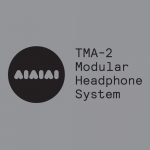



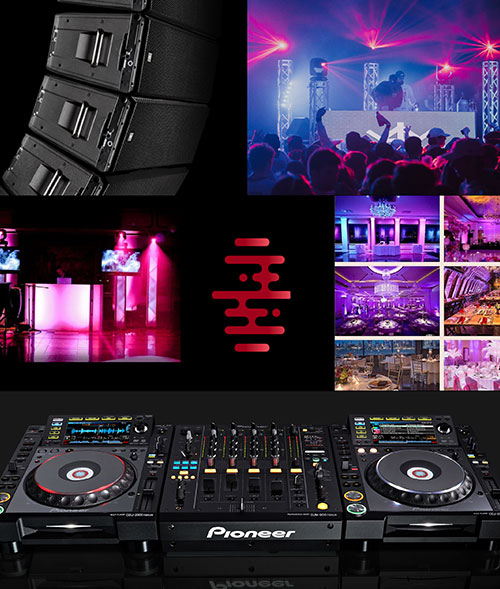


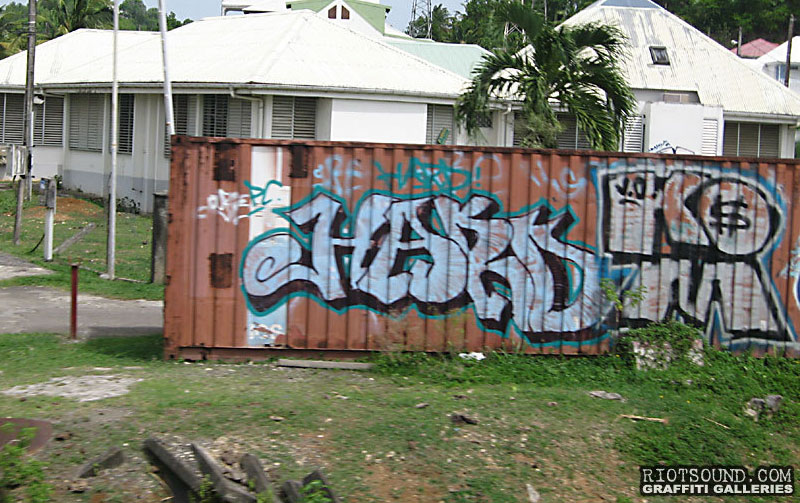
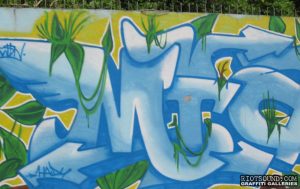
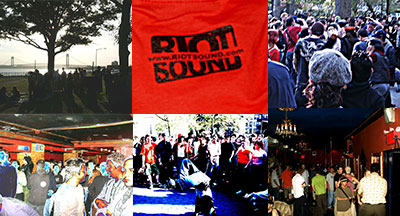
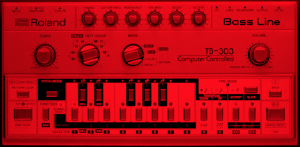













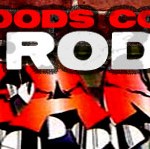


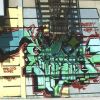
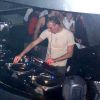


Comments